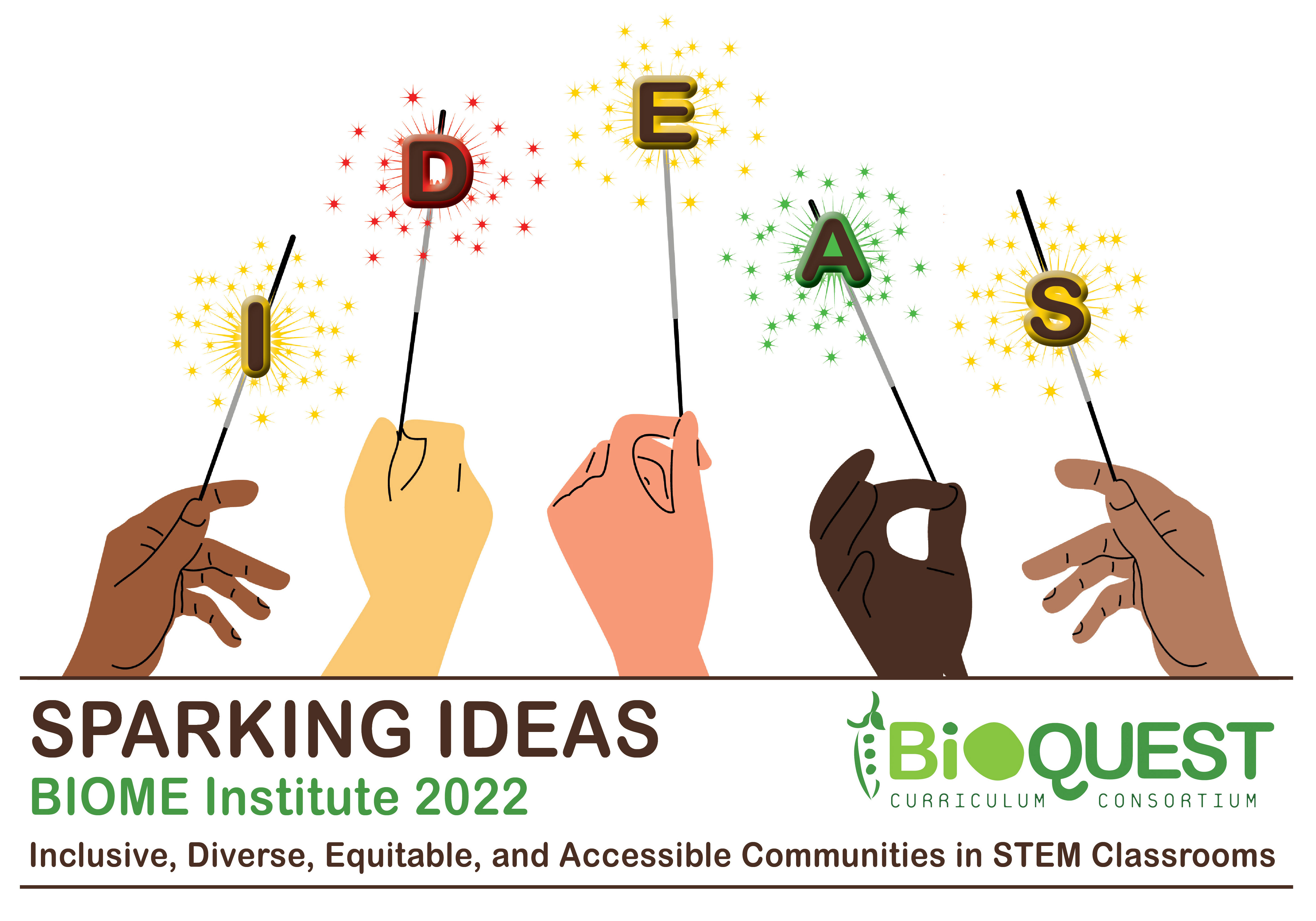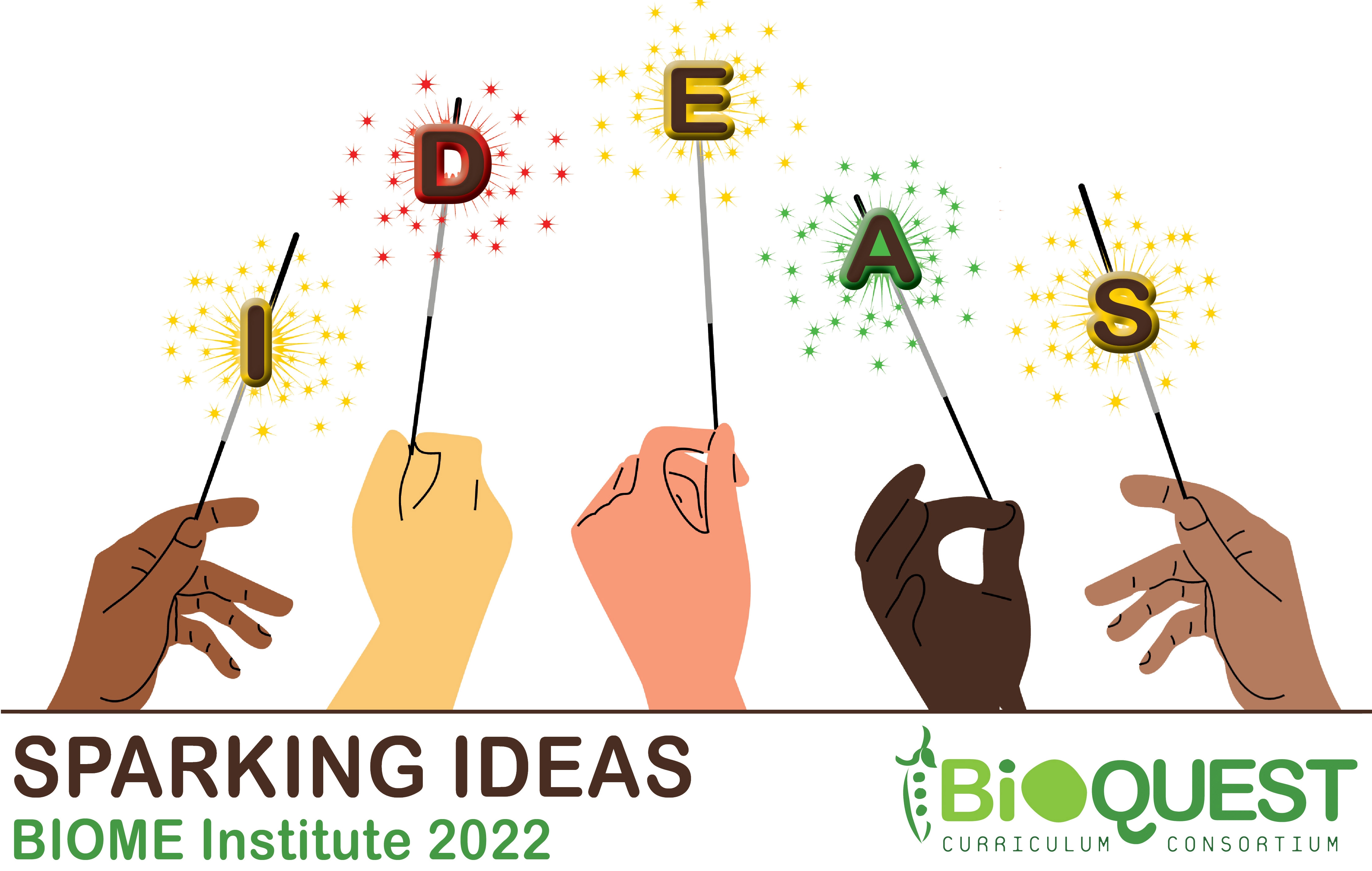Sparking IDEAS:
Inclusive, Diverse, Equitable, and Accessible Communities in STEM Classrooms
Subscribe for BioQUEST Updates including next year's BIOME!
Our 2022 BIOME Community

Working Group Lightning Talks
What did we do during the fall semester?
Kindness Working Group Lightning Talk- BIOME 2022
Version: 1.0
UDL Working Group- BIOME 2022 - Lightning Talk
Version: 1.0
Box-of-Lessons Review, Fall 2022 - YouTube
Version: 1.0
Building Better groups in STEM Courses
Version: 1.0
Also check out our Posters & Works-In-Progress from the Summer Session
Description
Creating equitable, inclusive learning environments for all of our students is paramount for empowering them as thinkers, scientists, and citizens, and for advancing scientific discovery and innovation. How do we foster a sense of belonging in each student and a sense of community for the class as a whole? How do we reduce barriers to participation and engage all perspectives? How do we position ourselves as leaders but also empower students to guide their own learning? In turn, what strategies for fostering inclusion and equity carry from the classroom into our professional networks?
The BioQUEST community, through the 2022 BIOME Institute, will aim to support faculty in building a sense of community and belonging within their classrooms and groups with the goal of creating networks and partnerships founded on mutual trust, respect, and open collaboration between students and educational leaders. BioQUEST has been a leader in STEM education reform for the past 35 years, and this year we will continue to grow our community through conversations focused on shifting the relationship between instructors and students, reframing instructional practice, and improving all student outcomes and feelings of belonging in STEM.
BIOQUEST: Evolution and Revolution in STEM Education
You should participate if you are interested in:
- Considering how pedagogical practices and resources can help build Inclusive, Diverse, Equitable, and Accessible Communities in STEM classrooms.
- Supporting diverse learners in contributing to scientific advances.
- Exploring inclusive teaching practices, the Universal Design for Learning framework, and resources designed to engage students in social justice as a part of scientific practice.
- Collaborating with colleagues to design course materials.
- Joining a community of committed, enthusiastic educators at all levels.
Community goals
- Use evidence based pedagogical approaches to develop teaching materials for your classroom to improve student outcomes.
- Increase awareness and implementation of inclusive, accessible pedagogical practices.
- Promote the use of Open Educational Resources (OER)
- Address the need to move between online and in person learning environments.
- Actively participate in a community of like minded peers
